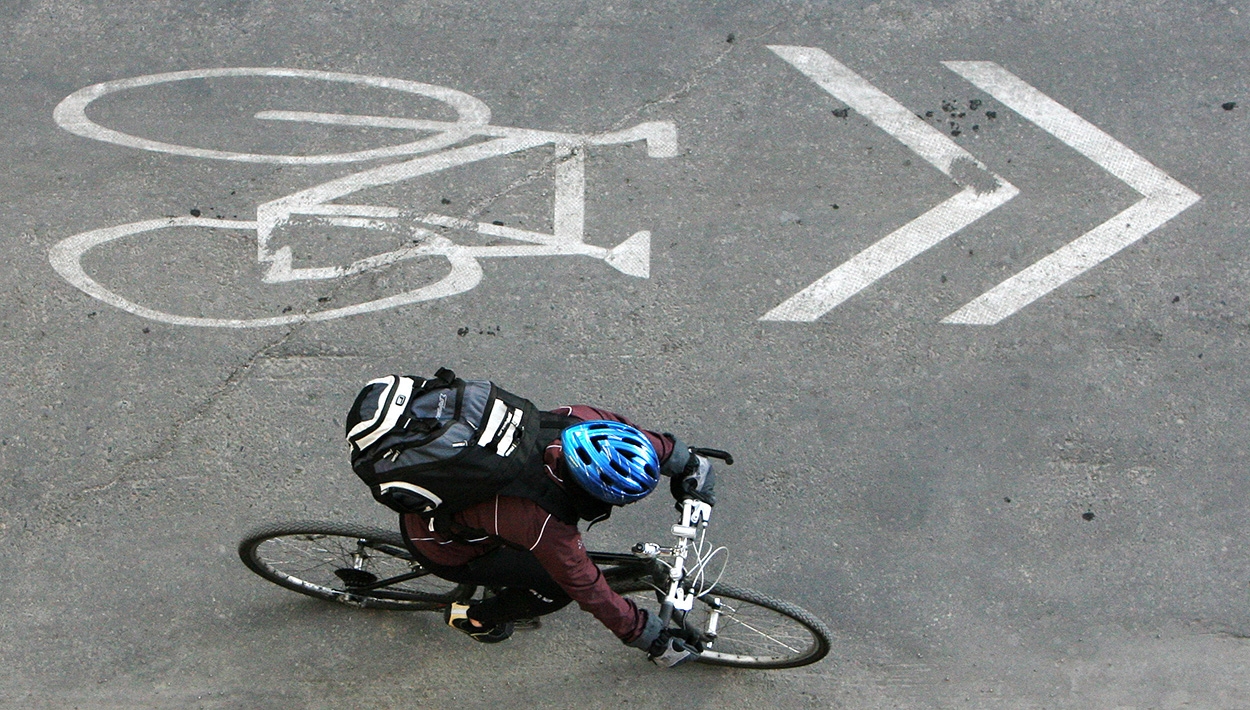Since my column last week on bike lanes and the importance of elected officials representing the many as opposed to the few, I’ve received a flood of emails. It’s clear that the issues I raised resonate with many Winnipeg citizens. I want to thank everyone who took the time to share their thoughts, concerns, and ideas.
Feel free to reach out to me anytime at [email protected]. The overwhelming response has highlighted a shared concern among taxpayers: the current attitude of “we have a right” is not serving us well.

This attitude, which has permeated the cycling community and certain elements within the City Council, is fostering an environment where the needs of a select few are being prioritized over those of the majority. One issue that has been repeatedly brought to my attention is the behaviour of e-bike riders. E-bikes, while a fantastic innovation, are motorized vehicles and should be treated as such.
Yet, we see them speeding down bike paths, overtaking pedestrians, and disregarding basic traffic laws. This is not only dangerous but also disrespectful to other road and path users. If e-bikes are to share our city’s infrastructure, they must adhere to the same regulations as other vehicles.
This includes licensing, which would hold e-bike riders accountable for reckless behaviour and ensure they contribute fairly to the maintenance of the paths they use. Moreover, why are we spending millions on building and maintaining bike paths while not allowing bicycles to utilize the rapid transit system? If the concern is that it would be too dangerous for buses, why are we allowing bicycles on major routes where the risks are arguably higher? This inconsistency needs to be addressed if we are serious about promoting cycling as a viable mode of transportation. On the other hand, I received emails from cyclists who argue that they pay taxes and frontage fees just like car owners and, therefore, deserve the same consideration.
While this is partially true, it’s important to acknowledge that the bulk of the money used to build these bike paths comes from infrastructure dollars, primarily funded by federal and provincial fuel taxes. These funds are contributed by motorists, not cyclists. These are irrefutable facts that cannot be ignored.
When I was young, I was required to be licensed to ride a bicycle. This wasn’t just a revenue-generating measure; it provided a way to ensure that bikes were safe to ride and that their owners could be held accountable if they broke the law. It also gave the police a tool to address issues like bike theft and traffic violations committed by cyclists.
Reintroducing a licensing requirement for cyclists could help address many of the concerns that have been raised, including the irresponsible behaviour of some e-bike riders. Let me be clear: I am not anti-cycling. I believe cycling is an important part of our city’s transportation landscape.
However, I am opposed to the bullying tactics being employed by some within the cycling community and their advocates on City Council. These individuals refuse to allow for a balanced discussion, one that considers the needs of all citizens, not just a vocal minority. The millions of dollars spent each year on bike lanes and the special care given to clearing snow from these lanes in winter need to be justified.
It is not enough to say that cycling is good for the environment or that it reduces traffic congestion. We need quantifiable data that shows how many people are using these bike lanes, especially in the winter months when the cost of maintenance is at its highest. There are more efficient and economical ways to promote cycling in Winnipeg without alienating other road users or diverting critical resources from more pressing infrastructure needs.
For instance, widening sidewalks by just 20 to 24 inches could create new bike paths without tearing up existing roads or impacting traffic. This is already being done in areas like Ridgewood, where bikes and pedestrians coexist harmoniously. Yet, despite the availability of these paths, some cyclists still choose to ride on the road, often in tandem, right next to the bike lanes that were built for their use.
This is a waste of resources that needs to be addressed. City Councillors need to remember that they were elected to represent the will of the many, not to cater to the demands of a small group of lobbyists. The needs of all residents should be prioritized, not just those who shout the loudest.
Our city has bridges that are out of commission due to years of neglect. Sidewalks that are essential for people to reach bus stops remain uncleared for days or even weeks in the winter, while bike paths are given priority treatment. This is not right, and it needs to change.
Collect the data, justify the expense, and make decisions that benefit all Winnipeggers, not just a select few. The Harte Trail, a beautiful path used by cyclists and pedestrians, is a shining example of how cycling infrastructure can be integrated into our city without disrupting other forms of transportation. This former rail line has been repurposed in a way that benefits everyone, and we should be looking for more opportunities to do the same.
Elected officials need to take a more balanced approach to transportation planning in Winnipeg. Let’s invest in solutions that serve the needs of all residents, not just a vocal minority. By doing so, we can create a city that is safe, efficient, and accessible for everyone.
— Kevin Klein is a former Tory cabinet minister, a former city councillor and is the President & CEO of Klein Group Ltd. Have thoughts on what’s going on in Winnipeg, Manitoba, Canada or across the world? Send us a letter to the editor at wpgsun.letters@kleinmedia.
ca.



















